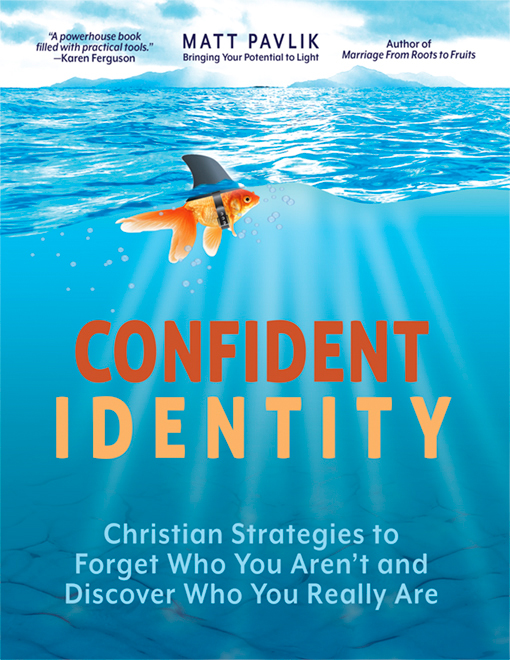Reading time: 6 minutes
Trust is essential for healthy relationships. So much so that you might wonder if trusting too much is even possible. Wouldn’t more be better?
Is trusting too much the same as loving too much or eating too much chocolate? How can you go wrong with something so good that is often in short supply? Anything used beyond its intended capacity or function can become harmful.
Trusting Too Much
Would you walk across a room in broad daylight? Most people wouldn’t have a problem with this. How about walking across the same room at night? While more challenging, most people could handle this. But what would happen if I had thrown out a handful of thumbtacks onto the floor?
Yes, it is possible to trust too much. It’s called blind trust. No one will fault you for it–possibly only yourself, after the fact. That’s because your trust benefits others. It will benefit you too, but only up to a point.
It might be helpful to think of trust not so much as an all-or-nothing blank check, but as something that you grant others in varying degrees. Asking whether you should trust someone oversimplifies the problem. Forcing a “Yes” or “No” leaves too much room for error. And the more error, the more people will be hurt.
To minimize the hurt, a better, more refined question is “How much do I trust this person?”
Trust has a natural limit or capacity much like a cup. If you fill a cup beyond its capacity, you will make a mess and waste your refreshing drink. With this analogy, the cup is the other person’s trustworthiness and the liquid is the length you go to trust them. Before you fill the cup it’s better to estimate how much it can hold. Does it have holes? Try to determine an individual’s character and trustworthiness.
Trust is a commodity that has a limited supply. If you give too much away… if you waste it… you might be unwilling to trust when you really want to.
Trusting too much is like giving away an essential body part and expecting the recipient will be able to keep you alive. It’s depending on someone for something they can’t possibly give you. You were never meant to function that way.
By trusting too much, you open yourself to being taken advantage of. Others might benefit, but only at your expense. When that happens, you are going to get hurt. The more you feel hurt, the more you are likely to decrease your level of trust.
While protecting yourself is wise in some cases, it’s never the best option all the time. Overprotecting yourself to prevent ever being hurt again goes too far. You might trust too little as a general rule you apply to everyone (even the people who are trustworthy). Instead of discerning if people are trustworthy (which requires much more effort), you predetermine to not trust anyone by withholding real consideration.
Trusting Too Little
Some people choose to trust too little. This is called mistrust. What if the person you are in a relationship with is trustworthy but you aren’t capable of trusting? That’s going to slow down your relationship, maybe to the point of breaking it.
Let’s return to the cup analogy. What if you go to fill another’s cup and realize you only have a few drops of trust that you’re willing to spare? If the other person has the capacity for trust, then you can be the limiting factor in the relationship.
How would a teenager feel about a mom who walks him to school and sits with him in class? Assuming the teenager typically makes it to school on his own and participates in class, this extreme hovering would degrade the relationship. The teen would probably either begin to rebel (which would be healthy) or suffer from low confidence (which would be unhealthy).
In an extreme case, trusting too little is called paranoia. A mom might have skipped school when she was a teenager. Perhaps she suffered from low self-esteem because her classmates teased her. She could over-emphasize her past hurts and then project them onto her son. It’s possible she feels too vulnerable even when her surrounding environment is safe.
It’s important to notice in this example that the amount of trust this mom allows isn’t based on her experience and observations of her teenager but based on her experiences and observations of herself.
Trusting Just Right
What is a person to do? If you trust too much, you can be hurt. If you trust too little, you hinder your relationships. The right amount of trust is called perceptive trust. The person engaged in perceptive trust is open to trusting others to the degree that they show themselves trustworthy. That’s exercising discernment.
Trust is evidence of a healthy relationship. But because no one is completely trustworthy except God, the cautions about trusting too much still apply. Even when you rightly determine a high level of integrity in a person, the amount of trust you place in an imperfect human should still be limited. Trusting too much will break your relationships with other humans. Others can’t live up to an exaggerated amount of trust. With too high expectations of a person, the relationship is doomed to fail from the start.
Trusting too much puts people on a pedestal. It can become idolatry.
It is better to trust the Lord for protection than to trust anyone else, including strong leaders.
Psalm 118:8-9 CEV
No matter how trustworthy another person is, there will always be some risk to trusting him. Nobody is perfect. Anyone at any time can let you down. So why should you trust anyone, including God who allows others to hurt you?
You can never trust God too much. He is completely trustworthy. You can’t blame Him for others’ mistakes. The more you trust God, without limit, the better off you will be.
Trust in the Lord with all your heart;
Proverbs 3:5 NLT
do not depend on your own understanding.
Trusting God with all you’ve got provides you with an insurance policy. If anyone lets you down, God will always be there to take care of you. When you’ve been betrayed, trusting God might not always make sense, but it doesn’t have to. Blind trust in God is always better than no trust in God. Although, even with God, trust based on a positive experience of Him is more robust. Don’t neglect to build up your trust in God.
Read about repairing broken trust.
Image by Christian Calhoun from Pixabay
Updated and Expanded August 7, 2022
Matt Pavlik is a licensed professional clinical counselor who wants to see each individual restored to their true identity. He has more than 20 years of experience counseling individuals and couples at his Christian counseling practice, New Reflections Counseling. Matt and Georgette have been married since 1999 and live with their four children in Centerville, Ohio.
Matt’s courses and books contain practical exercises that help God’s truth spring to life:





Leave a Reply